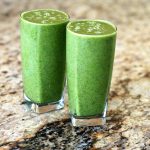To perform your best, you need to maintain a healthy diet and proper hydration. This includes getting enough vitamins and minerals to help with your workout recovery.
Micronutrients: vitamins and minerals are necessary for recovery from training, along with the macronutrients: carbs, proteins, and fats.
Micronutrients (vitamins and minerals) are vital to healthy development, disease prevention and overall health. Even though you only need small amounts of micronutrients, deficiencies can have unwanted health consequences. Micronutrients, except for Vitamin D are not produced in the body and must come from your diet.
Macronutrients are fats, carbohydrates and proteins. Your body needs macronutrients in large amounts and it takes a combination of all 3 macros to give you the energy you need.
Some vitamins and minerals help with reducing pain and inflammation; others promote healing and may reduce the risk of injuries in the future.
It is important to understand how micronutrients and macronutrients affect sports recovery and how to ensure you’re getting enough.
Sports Recovery
When you are exercising, your body has to work hard to keep up with the demands placed on it. Macronutrients and micronutrients are both necessary to provide the energy needed to power through activity and recover afterwards.
There are several vitamins and minerals involved in bodily processes of exercise performance and recovery.
There are several factors that play into recovering from exercise, including taking breaks and making sure you’re eating correctly. You need to replenish your vitamins and minerals after training so that you can train again at optimal levels.
The goal of sports recovery is to help you return to your normal level of activity and be able to do another workout, whether that means cardiovascular exercise, endurance training, or weightlifting.
How Vitamins and Minerals Help with Sports Recovery
Your body produces more oxygen when you are physically active, which leads to oxidative stress. Oxidative stress produces reactive oxygen and nitrogen species (free radicals) and oxidized molecules in muscle and other bodily tissues.
This process can lead to inflammation during the recovery process that can be decreased by proper recovery nutrition.
When you do strength training that is challenging, your muscles will experience micro-tears. When you work out, you create tiny tears in your muscle tissue. These tears repair and recover to create muscle tissue that is larger and potentially stronger than before you worked out.
However, proper recovery nutrition, including macro and micronutrients, is necessary for this to occur.
These vitamins and minerals need to be replaced in order to maintain proper health and avoid deficiency. Endurance exercise depletes certain vitamins and minerals, which need to be replaced to maintain proper health and avoid deficiency. The micronutrients need to be replaced for the person to recover.
Nutrients Needed for Recovery
Vitamins and minerals are important for helping the body to recover. They play a variety of roles in the healing process. Below are some of the most important vitamins and minerals needed for recovery.
1. B Vitamins
The B vitamins are well known for their role in the metabolism of proteins and carbohydrates, cellular repair, reducing inflammation, energy storage, brain health, and cell production.
Studies suggest that people who are active are more at risk of having low or deficient levels.
More vitamin B2 may be required for those who exercise frequently or at higher intensities due to metabolic stress. To a lesser extent, vitamin B6 may also be required because it plays a role in protein metabolism.
Athletes typically require more protein than the general population.
Not consuming enough essential B vitamins can interfere with physical performance and concentration, increasing fatigue and injury. Females and sports that require a thin physique are especially affected by this. The amount of energy being expended may not be offset by the amount being consumed.
Folate and vitamin B12 help the body to create red blood cells and to repair muscle cell damage that can occur from physical activity. It is important for female athletes to eat a variety of nutrient-dense foods to get a good range of B vitamins.
Women typically eat less than men and as a result are more likely to not get enough nutrients on a regular basis. This is caused by outside pressure to be skinny, which leads to not eating enough food over a long period of time. If you need help ensuring you’re getting enough nutrients for your lifestyle, talk to a dietitian or healthcare provider.
2. Vitamin C
Vitamin C is necessary for the growth and repair of bodily tissues, including collagen, which is important for healing.
Vitamin C contributes to protein metabolism, which is essential for rebuilding tissues in your body. This is important for muscle growth after a workout. Keeping your immune system healthy is important for maintaining peak performance levels. Vitamin C can help to prevent illness and keep your immune system functioning properly.
Vitamin C has been shown to reduce pain and inflammation after working out. A meta-analysis of several studies on the matter indicates that the effect may not be as significant as initially assumed.
Further research is required to determine if vitamin C has any discernible impact on reducing pain and inflammation following a workout.
The National Institutes of Health recommends that men take 90 milligrams of vitamin C daily and that women take 75 milligrams of vitamin C daily. Pregnant or lactating women should take higher doses.
3. Vitamin A and Carotenoids
Vitamin A plays a role in supporting the immune system, cell communication, and growth and development. As you work out, carotenoids act as antioxidants and help reduce the level of inflammation in your body.
Further research on the carotenoid astaxanthin has shown that it can also help to reduce inflammation and oxidative stress in the muscles. It may also prevent muscle loss and deterioration.
This research is not conclusive and more investigation is needed to determine its health benefits.
4. Potassium
In order to maintain healthy levels of potassium in your body, you need to consume it through diet or supplements, as your body does not produce it. Almost every physical function requires potassium, such as kidney and heart function, muscle contraction, and nerve transmission.
Potassium is especially important for athletes because it is an electrolyte that is lost through sweating. Potassium is vital to replace if you sweat a lot or participate in endurance activities. Potassium is important for muscle cell, cardiovascular, and respiratory function.
Potassium is essential for a process called hyperaemia, which is increased blood flow to the muscles.
If you follow a low-carbohydrate diet, you may be at risk for losing potassium and becoming deficient in this essential nutrient. Potassium is needed in high amounts to turn glycogen that is stored back into glucose so that it can be used for energy.
5. Magnesium
Magnesium can help your muscles to relax after working out and may help to protect them from damage. A majority of people in the U.S. do not consume the recommended amount of magnesium, according to the National Institutes of Health.
Magnesium, like potassium and sodium, is an electrolyte that needs to be replaced after prolonged or strenuous workouts and sweat loss.
It is responsible for more than 300 enzyme functions. The protein synthesis is one of the the functions that help with exercise recovery, including muscle and nerve function.
Magnesium is often used in bath soaks for its muscle relaxation effects.18 Although the research on this is limited, taking a warm bath with Epsom salts or magnesium flakes may help you relax after a workout. However, it is not recommended as a treatment for magnesium deficiencies or in people who are at risk for magnesium deficiency.
6. Protein-Rich Foods
Protein is an important nutrient for many tissues in your body, including muscle. After a sports injury, the injured body part is often immobilized in order to allow it to heal properly. When people don’t use their muscles regularly, they gradually become weaker and their muscles waste away.
However, getting enough protein can help minimize this loss. A diet high in protein may help to prevent inflammation from getting too severe, and therefore speed up your recovery.
If you want to help your body heal and rebuild any lost muscle, slightly increasing your protein intake can help.
Some foods that are high in protein are meat, fish, poultry, eggs, tofu, beans, peas, nuts, and seeds. You should eat some of these every day.
The time of day you eat certain foods also affects how your body reacts to them. If you want to gain muscle, you should spread your protein intake over four meals instead of eating unevenly throughout the day.
Some experts suggest that eating a snack with lots of protein in it before you go to bed may help your body build muscle while you sleep.
Eating foods that are rich in protein at every meal and for snacks may help to reduce the amount of muscle loss that occurs following an injury. Eating foods high in protein may help you build muscle mass more quickly when you start working out again.
7. Fiber-Rich Foods
Fiber-rich foods also tend to be high in other essential nutrients for your workout recovery, including vitamin C, magnesium, and zinc.
Foods high in fiber, like fruit, vegetables, legumes, and whole grains, make you feel more full after you eat them. Note that reducing calories too much can reduce wound healing and promote muscle loss, which will slow down your recovery.
Getting enough fiber will aid in digestion and elimination, keeping your body regular as you recover from your workout.
Foods that are rich in fiber can help with healing and weight management.
8. Omega-3 Fatty Acids
Strength training and working our muscles causes some inflammation. The inflammation response is needed in order to help with the healing process. If the inflammation doesn’t go down soon, it could hinder your progress. A diet rich in omega-3 fats can help to reduce inflammation and speed up recovery.
These good fats, which are found in foods such as fish, algae, walnuts, flaxseed, and chia seeds, have anti-inflammatory properties.
You can limit inflammation by consuming less omega-6 fats, which are found in corn, canola, cottonseed, soy, and sunflower oils.
If you consume too many omega-6 fats, it may promote inflammation, especially if your intake of omega-3 fats is low.
Some studies have shown that omega-3 supplements can help with building muscle mass, reducing muscle soreness after exercise, reducing muscle loss when you are inactive, and help with concussion recovery.
Foods containing omega-3 fats could help you get better faster by preventing too much or prolonged inflammation. To help improve your health, it is recommended that you limit how much omega-6 fat you consume.
9. Zinc-Rich Foods
Many enzymes and proteins contain zinc, including those needed for wound healing, tissue repair, and growth. Studies have shown that not getting enough zinc in your diet can delay wound healing.
You can find zinc in your diet in foods such as chicken, red meat, fortified breakfast cereals, beans, and fish.
Zinc is important for healing, so consuming foods that are high in zinc can aid workout recovery.
Though taking zinc supplements may be tempting to some people in order to meet their recommendations, this may not be necessary. High doses of zinc from supplements may inhibit the absorption of copper, potentially leading to copper deficiency.
Foods rich in zinc can help improve wound healing and tissue repair.
READ MORE: Health Benefits Of Zinc
10. Vitamin D and Calcium-Rich Foods
Calcium is an important component of bones and teeth. It’s also involved in muscle contractions and nerve signaling. It is essential to have a consistent intake of calcium.
Dairy products, leafy greens, sardines, broccoli, okra, almonds, seaweed, and calcium-fortified tofu and plant milks are rich in calcium.
Vitamin D is important because it helps your body absorb the calcium from the food you eat. Magnesium is integral to bone healing as it works alongside calcium to repair bones.
There are a few foods that can help you to get vitamin D: salmon, tuna, eggs and mushrooms.
While few foods contain vitamin D naturally, your body is able to create it from exposure to sunlight. People who spend most of their time indoors or in places with little sunlight may need to take supplements to get enough vitamin D.
Conclusion
There are many factors to consider when you are recovering from a workout. You may not be able to control all the nutrients you provide your body, but you can likely control some of them.
One way you can speed up your recovery is by regularly consuming the foods and supplements mentioned in this article. You should talk to your doctor before taking any supplements, especially if you are also taking any prescription medications.
Want an all natural post workout rehydration solution? Try Purium’s Super Lytes! Super Lytes is the ultimate rehydration and electrolyte supplement made from natural ingredients. A great alternative to sodium pills and artificial sports drinks.
READ MORE: Foods That Fuel Workout Recovery









